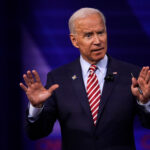Minnesota Governor Tim Walz has recently sparked debate with his statements regarding free speech. In a televised interview, he asserted that there is “no guarantee to free speech” when it comes to “misinformation or hate speech.” His stance has drawn both support and criticism, raising important questions about the delicate balance between protecting speech rights and addressing harmful content.
The Controversial Statement
During an appearance on MSNBC, Governor Walz emphasized the need for “pushback” against misinformation and hate speech. He argued that certain forms of expression should not be protected under the umbrella of free speech, especially when they threaten democratic processes or harm marginalized communities.
The Constitutional Context
Walz’s assertion directly challenges the First Amendment of the U.S. Constitution, which explicitly prohibits Congress from making laws that abridge freedom of speech. However, legal scholars and courts have long grappled with defining the boundaries of protected speech. While the First Amendment safeguards robust public discourse, it does not shield all forms of expression equally.
Hate Speech vs. Free Speech
Governor Walz’s position centers on distinguishing between hate speech and legitimate discourse. While hate speech is deeply troubling and harmful, the legal framework remains complex. Courts have generally upheld the right to express offensive or unpopular views, even when they cause discomfort or offense. However, specific contexts—such as incitement to violence or targeted harassment—may warrant restrictions.
The Role of Government
Walz’s call for “pushback” raises questions about the role of government in regulating speech. Striking the right balance is crucial: protecting vulnerable communities while avoiding overreach. Critics argue that government intervention risks chilling free expression, while supporters emphasize the need to combat harmful narratives.
Conclusion
Governor Tim Walz’s statements remind us that free speech is not an absolute guarantee. As we navigate the complexities of our digital age, finding common ground between safeguarding democracy and addressing harmful content remains an ongoing challenge. Whether we agree with Walz or not, his perspective underscores the importance of thoughtful dialogue and informed policymaking. If the democrats would like to remove free speech this is a route they can take we are not saying it will be successful but they can attempt it. Here are the steps remember this is a
hypothetical scenarios. If we were to consider a world without free speech protections, it would likely involve significant changes to legal frameworks and constitutional amendments. Here are some steps that might lead to the removal of free speech:
- Amend the Constitution: The most direct way would be to amend the U.S. Constitution to remove or alter the First Amendment. This process requires a two-thirds majority vote in both houses of Congress or a constitutional convention called by two-thirds of state legislatures.
- Court Decisions: Overturning landmark Supreme Court decisions that have upheld free speech rights (such as Brandenburg v. Ohio or New York Times v. Sullivan) could weaken protections. New rulings could redefine the scope of permissible speech.
- Legislation: Congress could pass laws that restrict speech, although any such laws would face constitutional challenges. For example, laws targeting hate speech, disinformation, or certain forms of expression could limit free speech.
- Public Opinion and Culture: A shift in societal attitudes could lead to reduced support for free speech. Public discourse, media narratives, and educational curricula play a role in shaping these attitudes.
- International Influence: Global norms and treaties might encourage countries to limit free speech. International pressure could lead to changes in domestic policies.
- Emergency Powers: During crises (such as war or national security threats), governments often restrict civil liberties, including free speech. Prolonged emergency powers could erode these rights.
Remember that free speech is a complex and multifaceted issue, and any changes would have wide-ranging implications. Advocates for free expression emphasize its role in democracy, while critics argue for limits to prevent harm or protect marginalized groups. Ultimately, the balance between free speech and other societal interests remains a critical debate





